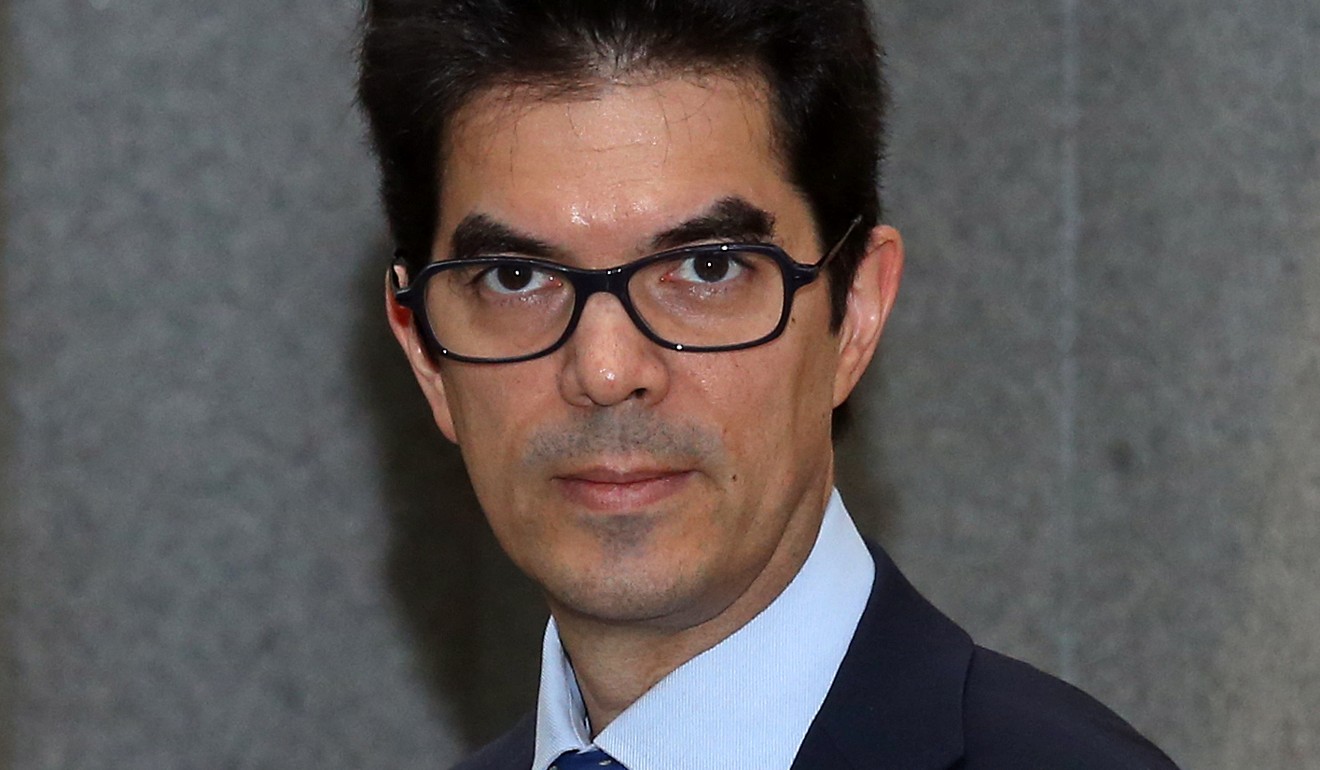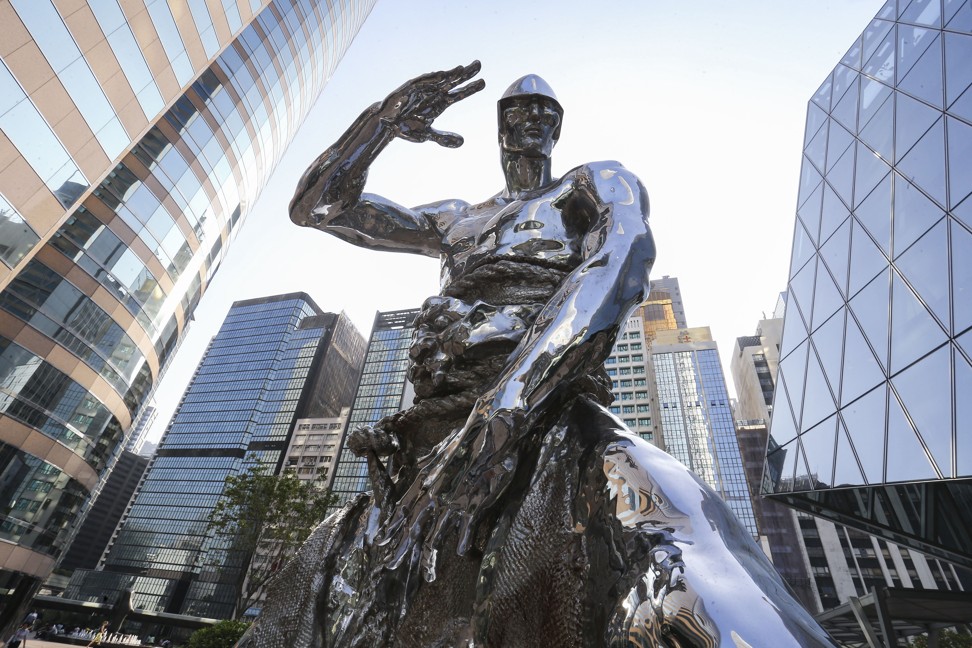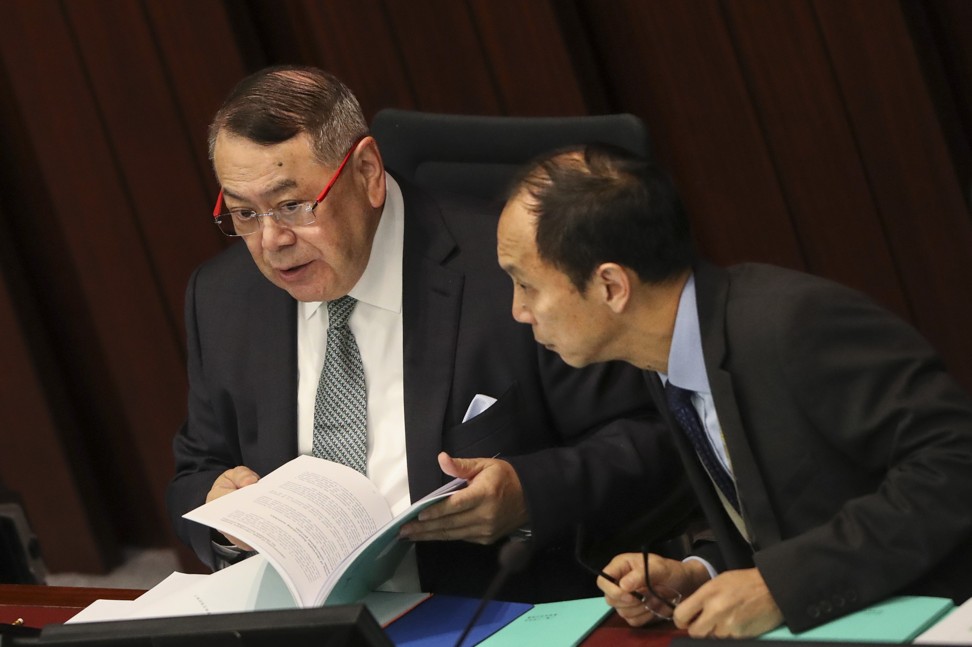
Hong Kong poised to take an axe to multiple directorships to enhance corporate governance
Hong Kong is ranked fourth in the world in the concentration of corporate directorships, with 65 directors each sitting on more than six boards, sharing 499 seats between them
For Abraham Razack, the idea of a media interview involves meeting over drinks in the middle of a work week. It may just be a measure of how things get done in Hong Kong – by nursing relationships over gins and tonics at a favourite club.
Razack, also known as Abraham Shek Lai-him, is probably one of Hong Kong’s busiest corporate directors, currently sitting on the boards of 18 publicly traded companies as an Independent Non-Executive Director (INED), taking home over HK$5 million (US$639,000) in annual fees, according to Bloomberg’s data. That does not include directorships in scores of private companies, and memberships in a dozen statutory bodies and government committees.
The boards he sits on cover the gamut of Hongkongers’ daily lives, spanning education, mass transport, property, financial services and their pension. He is also a member of the city’s Legislative Council, representing the real estate and construction constituency.
Those clubby days may be numbered, as Hong Kong’s stock exchange is poised to implement a new set of listing rules on January 1 with a “comply and explain” provision that requires companies to seek shareholders’ approval of why a director is able to handle more than six simultaneous board seats.
There are 65 directors in Hong Kong who each sits on more than six boards, sharing 6.6 per cent of the city’s corporate seats between them, or 499 out of 7,564 seats, according to data by Webb-Site.com, operated by corporate governance activist David Webb.

On average, each director in a Hong Kong-listed company sits on two boards, putting the city in fourth place globally in the rankings of management density, according to Institutional Shareholder Services (ISS), a shareholder advisory firm. Only Sri Lanka, the Philippines and India rank higher.
How many is too many? Anybody with a full-time job, and just three director’s seats, would already be “very busy,” said Winnie Peng, who specialises in family business and entrepreneurship at the Hong Kong University of Science and Technology.
Independent, non-executive directors are often appointed as “window dressing,” as a sign of independence in a market where nearly 70 per cent of listed companies are family controlled, Peng said. Even Razack describes Hong Kong’s biggest companies as “corporatised family businesses.”
Under pressure by institutional investors, global funds including BlackRock, State Street and Vanguard are bolstering their corporate governance. The British Columbia Investment Management Corporation, with C$135 billion (US$103 billion/) of assets under management, said that it would reject any board nominee who already has six directorships.
“Definitely, this is more serious in Hong Kong, but it is also quite common in Asia,” says Flora Wang, head of BlackRock’s Investment Stewardship for Greater China. “The emphasis has been on relationships [in Hong Kong]; board memberships are a way of maintaining relationships.”
Razack, the youngest of five children, was born in Macau two months before the end of the Second World War. His mother, a widowed teacher, moved the young family to Hong Kong, where they lived in a small tenement flat in Wan Chai.
Raised as a Catholic - his smartphone wallpaper features a likeness of the Virgin Mary - Razack studied history at the University of Sydney, and worked briefly as a special-needs teacher before returning to a life in business in Hong Kong of the late 1960s.
His career took many turns, beginning with shipping with the Swire Group, and then with Orient Overseas Container Line, founded by the family of Hong Kong’s first Chief Executive Tung Chee-hwa.
He shifted his interest to land transport in the 1980s at the Kowloon Canton Railway Corporation as commercial director in 1984. Three years later, he was appointed chairman of the Land Development Corporation, the forerunner of the Urban Renewal Authority.

On his upwards path in corporate Hong Kong of the 80s and 90s, he developed a keen interest in racing, buying horses in the UK and managing racing syndicates that brought business friends together. Among them was Henry Tang Ying-yen, who would later rise in politics to become Hong Kong’s Chief Secretary, before making a failed bid for the city’s Chief Executive position.
In 2000, he took over the Legislative Council seat for the real estate and construction with the apparent blessing of the Real Estate Developers Association. He currently sits on the boards of several property companies - Country Garden Holdings, Champion Reit, Lifestyle Holdings, CSI Properties, Lai Fung Holdings, and even the companies owned by both factions of the feuding Lo family.
“He is smart and shrewd,” says James Tien, former chairman of the Liberal Party, a pro-Beijing conservative political party in the city. Tien courted Razack to join the Liberal Party in 2000.
“He’s a survivor, balancing the interests of the top 10 real estate families [as Legco member] for nearly 20 years … that is unheard of,” Tien said.
Razack was appointed in December 2007 to the board of MTR Corporation, Hong Kong’s subway operator and the world’s most profitable mass transport company by some measure. He sits on the company’s capital works committee, tasked with overseeing any project valued at more than HK$10 billion (US$1.28 billion), and also chairs the nomination committee that oversees executive appointments.
Ma and Razack served together on the board of the Hong Kong Mortgage Corporation in 2004, when Henry Tang was chairman in his capacity as the city’s then Financial Secretary.
For his part, Razack said MTR’s staff “fear” him, because he is not afraid to ask tough questions.
Still, Razack isn’t alone in wearing multiple hats, not least on MTR’s board.

Allan Wong Chi-yun, who chairs MTR’s capital works committee, also sits on the boards of the Bank of East Asia, Li & Fung, and China-Hong Kong Photo Products Holdings. That is not counting VTech Holdings, a toymaker with US$2 billion in sales and 26,000 employees that Wong co-founded, in which he serves as chairman and CEO.
Among the changes to the HKEX’s code of corporate governance are rules that require companies to explain to shareholders why a proposed board member can manage the responsibilities with a seventh directorship, or more. Additional rules require greater transparency about board nominations, and a greater degree of financial independence by requiring longer “cooling off” periods, say between a lawyer working for the firm and the later appointment to the board.
An arbitrary numerical limit is ultimately meaningless, as only minority shareholders should be allowed to voter on the appointments of independent directors, Webb said.
“As long as a company has a controlling shareholder, the independent non-executive directors are only as independent as the controlling shareholder wants them to be,” Webb said. “That festering issue is at the core of many of the corporate governance problems in Hong Kong.”
Some see Hong Kong heading in the right direction, with the proposed rules.
“With its reforms, the Hong Kong stock exchange is saying that corporate governance is an important issue and is raising attention for it,” said BlackRock’s Wang. “The direction of travel by the HKEX is for the better.”
For Razack, who winks when he professes to being a Catholic - “though not a good one,” he said - the impending rules do not appear to slow the offers knocking on his doors. The consultation process by the exchange and the securities regulator to enhance corporate governance was akin to “a weak man trying to rule by consensus,” even if it’s heading in “a better position,” he said.
CSI Properties appointed Razack to its board in July. Asked about the appointment, CSI’s chairman Mico Chung Cho-yee said the company was lucky to have the well-connected businessman-politician on its board.
“The shareholders like me,” Razack said.

